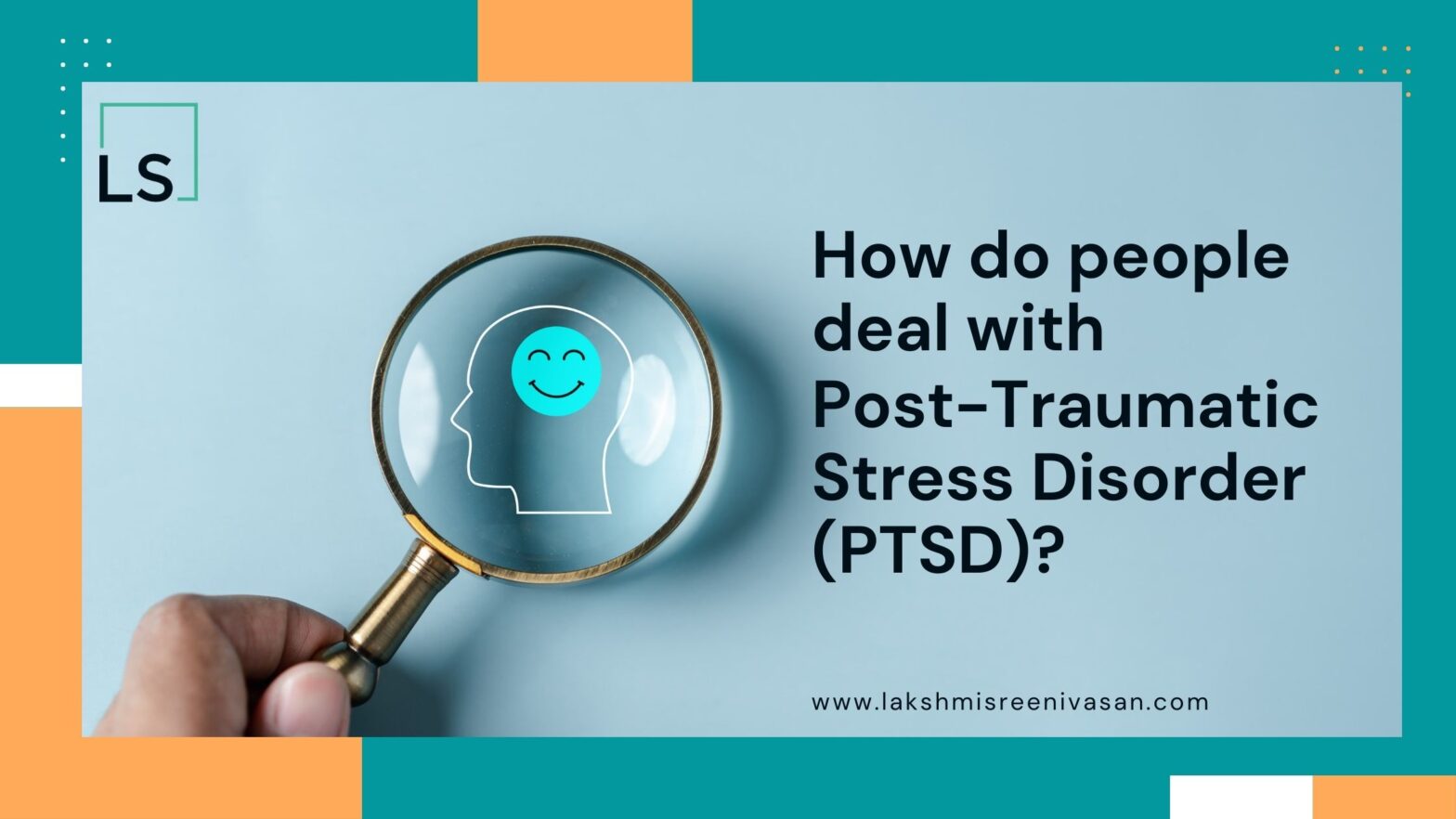
In a world that constantly evolves and presents new challenges, the human mind is often subjected to various stressors and traumatic experiences. For many, these experiences can lead to the development of Post-Traumatic Stress Disorder (PTSD), a complex and deeply impactful condition that affects millions of people worldwide. In this article, we’ll explore the ways in which people deal with PTSD, drawing from both personal and professional perspectives, with a focus on the invaluable insights and experience of Lakshmi Sreenivasan, an OD consultant with over two decades of experience in multiple industry domains.
Understanding Post-Traumatic Stress Disorder PTSD
Post-Traumatic Stress Disorder is a mental health condition that can develop after an individual has experienced or witnessed a traumatic event. These events can vary widely, from natural disasters and accidents to combat situations, physical or sexual assault, or even ongoing emotional abuse. The symptoms of Post-Traumatic Stress Disorder PTSD can be extremely debilitating, affecting one’s daily life, relationships, and overall well-being.
Lakshmi Sreenivasan, with her vast experience as an Organizational Development (OD) consultant, recognizes the importance of addressing PTSD in various contexts. The impact of trauma is not limited to personal lives; it can also extend to the workplace. Understanding and addressing the challenges that PTSD poses in the professional sphere is an essential part of her work.
Seeking Professional Help
One of the most crucial steps in dealing with PTSD is to seek professional help. This can come in the form of therapy, counseling, or medication, depending on the severity of the condition. Therapists, psychologists, and psychiatrists are trained to provide guidance and support to individuals experiencing PTSD.
In her role as an OD consultant, Lakshmi emphasizes the importance of organizations acknowledging and supporting employees who may be struggling with PTSD. By providing access to counseling services and creating a stigma-free environment, companies can play a pivotal role in helping their employees deal with trauma.
Talk Therapy
Talk therapy, also known as psychotherapy, is a common and effective approach to treating PTSD. Cognitive-behavioral therapy (CBT) is a specific form of talk therapy that is often employed to help individuals understand and change their thought patterns and behaviors related to their trauma.
Lakshmi Sreenivasan’s experience in facilitating organizational transformation through executive coaching and leadership development enables her to appreciate the value of talk therapy not only on an individual level but also within the context of leadership development. Leaders who have experienced trauma may find talk therapy especially beneficial in addressing and overcoming their PTSD, leading to healthier, more effective leadership.
Support from Loved Ones
Support from family and friends can make a significant difference in dealing with PTSD. Being open about one’s experiences and feelings with trusted individuals can provide a sense of relief and validation. Loved ones can also encourage those with PTSD to seek professional help.
In her work, Lakshmi Sreenivasan emphasizes the importance of creating a culture of support within organizations. Leaders who understand and empathize with their employees’ personal struggles, including PTSD, can foster a more inclusive and compassionate workplace.
Self-Care and Coping Strategies
Dealing with PTSD often involves the development of self-care and coping strategies. These strategies can vary from person to person but might include exercise, mindfulness practices, relaxation techniques, and creative outlets like art or writing.
Lakshmi Sreenivasan’s experience in co-creating comprehensive, high-impact learning platforms in the area of culture shift and competency mapping aligns well with the concept of helping individuals develop coping strategies. By identifying the strengths and needs of individuals within an organization, strategies can be tailored to provide the necessary support for those dealing with PTSD.
Medication
In some cases, medication prescribed by a psychiatrist can be a vital component of PTSD treatment. Medications may help manage symptoms such as anxiety, depression, and sleep disturbances.
Lakshmi’s work in change management highlights the importance of adaptability and evolving approaches. In the context of PTSD treatment, the use of medication can be seen as a dynamic strategy that may be adjusted as needed, depending on the individual’s response to treatment and changing circumstances.
Holistic Approaches
The journey to healing from PTSD often involves holistic approaches that address the mind, body, and spirit. This can include practices such as yoga, meditation, acupuncture, and mindfulness. Holistic approaches focus on the interconnectedness of physical, emotional, and mental well-being.
Lakshmi’s background in leadership development and assessment & development centers underscores the value of a holistic approach not only in individual healing but also in organizational strategies. A holistic approach to addressing PTSD within a workplace considers the well-being of employees in its entirety, recognizing the impact of trauma on personal and professional aspects of their lives.
Creating a Safe Environment
Lakshmi Sreenivasan’s emphasis on facilitating organizational transformation is a testament to the fact that creating a safe and inclusive environment within organizations is of paramount importance. By fostering a culture that promotes psychological safety, employees are more likely to seek help and support when dealing with PTSD or any other mental health condition.
Resilience and Growth
It’s essential to understand that healing from PTSD is not about erasing the past but learning to navigate it in a healthier way. With time, therapy, and support, individuals can develop resilience and even experience personal growth as they come to terms with their trauma.
As a seasoned OD consultant, Lakshmi Sreenivasan is well aware of the concept of organizational resilience and growth. Companies that support their employees in their healing journey can benefit from a more resilient and adaptable workforce.
In conclusion, dealing with PTSD is a complex and deeply personal journey. Seeking professional help, engaging in talk therapy, leaning on the support of loved ones, developing coping strategies, and considering holistic approaches are all part of the healing process. In the professional sphere, the guidance of experienced OD consultants like Lakshmi Sreenivasan is invaluable in creating supportive and empathetic workplace environments.
Ultimately, as society becomes more aware of the challenges that individuals with PTSD face, the hope is that the stigma surrounding this condition will continue to decrease, making it easier for people to seek the help and support they need. The journey to healing may be long and challenging, but with the right resources and support, individuals can reclaim their lives and move forward with strength and resilience.

